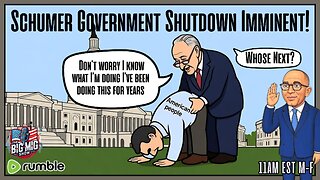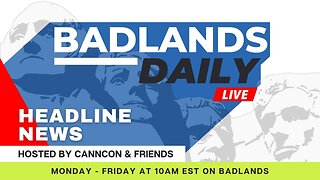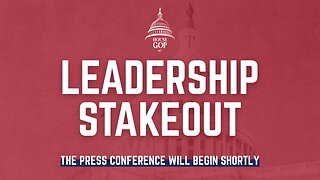Premium Only Content

The Gen Z Workforce Paradox: Stress, Burnout, and Unfulfilled Potential
Generation Z, born roughly between 1997 and 2012, is rapidly becoming a significant force in the workforce. However, recent statistics paint a concerning picture: 98% of Gen Z workers report experiencing burnout, with nearly half feeling drained and a significant portion grappling with unmanageable stress. Simultaneously, employers are voicing frustrations, with six in ten reporting unsatisfactory performance and contemplating avoiding Gen Z hires altogether.
This paradox raises a critical question: How can a generation both struggle profoundly and disappoint at work, despite being touted as tech-savvy, innovative, and socially conscious?
A Generation Under Pressure
The Roots of Burnout
1. Digital Overload
Gen Z grew up immersed in technology, a double-edged sword. While it has provided unparalleled access to information and connectivity, it has also blurred the boundaries between work and personal life. Constant notifications, digital monitoring, and the “always-on” culture exacerbate stress.
2. Economic Instability
Many Gen Z workers entered the workforce during or after the COVID-19 pandemic, facing unprecedented uncertainty. Stagnant wages, skyrocketing housing costs, and inflation mean they are working harder but struggling to achieve financial independence.
3. Mental Health Crisis
Gen Z has been vocal about prioritizing mental health, but this transparency reveals an alarming trend: heightened anxiety, depression, and stress levels. The pressure to “do it all” in a competitive world often leads to paralysis rather than productivity.
Workplace Challenges
• Remote Work Adjustments
While remote and hybrid work models are more prevalent, they can leave Gen Z workers feeling isolated and disconnected, compounding stress and diminishing team collaboration.
• Unrealistic Expectations
Many Gen Z workers express a desire for meaningful work, but the reality of entry-level jobs often clashes with their ideals, leading to dissatisfaction and disengagement.
Employers’ Frustrations with Gen Z
On the other side of the equation, employers are reporting that many Gen Z hires lack motivation, communication skills, and professionalism. What’s driving these perceptions?
1. Misaligned Expectations
Gen Z workers often seek rapid career progression, work-life balance, and purpose-driven roles. When these expectations aren’t met, their engagement suffers, creating a perception of entitlement or laziness.
2. Soft Skills Gap
Growing up in a digital world has sometimes come at the expense of face-to-face communication and interpersonal skills, making it challenging for Gen Z workers to thrive in collaborative environments.
3. Cultural Disconnect
Traditional workplace norms often clash with Gen Z values, such as prioritizing mental health and questioning authority. Without mutual understanding, tensions arise.
What This Means for the Future of Work
The challenges Gen Z faces—and presents—highlight systemic issues within modern workplaces. Addressing these concerns requires a shift in perspective from both employers and employees.
For Employers
• Revamp Onboarding and Training
Equip Gen Z hires with the soft skills and technical competencies they may lack through robust mentorship and training programs.
• Cultivate Empathy and Understanding
Recognize the unique challenges Gen Z faces. Prioritize mental health initiatives, flexible work arrangements, and clear career development pathways.
• Foster Purpose and Engagement
Gen Z thrives when they feel their work matters. Align roles with company missions and offer opportunities for meaningful contributions.
For Gen Z Workers
• Adapt and Upskill
Recognize the importance of soft skills like communication, teamwork, and time management. These are as critical as technical expertise.
• Manage Expectations
Success takes time. Focus on growth, patience, and resilience rather than immediate gratification.
• Balance Passion with Practicality
While it’s vital to seek purpose in work, not every role will align with personal passions. Find ways to integrate meaning into your life outside of the workplace.
A Collaborative Future
The generational gap between employers and Gen Z workers doesn’t have to be a chasm. Instead, it can serve as an opportunity to redefine workplace culture, prioritize mental health, and innovate in ways that benefit everyone.
If employers and Gen Z can meet each other halfway, this generation has the potential to bring fresh perspectives, technological acumen, and a commitment to social responsibility that could reshape industries for the better. The challenge lies in turning frustration into collaboration and burnout into balance.
-
 4:44
4:44
FragmentsOfTruth
4 days agoWhen She Finally Felt What Men Go Through
201 -
 LIVE
LIVE
MYLUNCHBREAK CHANNEL PAGE
3 hours ago1000's of Miles of Tunnels
495 watching -
 LIVE
LIVE
The Big Mig™
2 hours agoSchumer Government Shutdown Screwing America AGAIN!
3,234 watching -
 LIVE
LIVE
Bannons War Room
7 months agoWarRoom Live
13,214 watching -
 1:09:26
1:09:26
Benny Johnson
1 hour agoDemocrats Throw Hysterical MELTDOWN As Trump Gives Them 'Trump 2028' Hats, Trolls With 'Racist' Meme
30.5K18 -
 1:35:09
1:35:09
Dear America
3 hours agoDems Cause a Gov SHUTDOWN!! Remember THEY HATE YOU! + Bomb Threat At TPUSA Event!!
73K72 -
 LIVE
LIVE
Badlands Media
10 hours agoBadlands Daily: October 1, 2025
3,999 watching -
 2:14:56
2:14:56
Matt Kohrs
11 hours agoGov'nt Shutdown: Stocks Whipsaw, Bitcoin Pops & Gold Hits Record || Live Trading
17.8K1 -
 LIVE
LIVE
Law&Crime
2 hours agoLIVE: Gun-Cleaning Gone Deadly Trial – FL v. Leslie Boileau – Day 1
79 watching -
 30:52
30:52
House Republicans
1 hour agoHouse Republicans Leadership Stakeout
9102